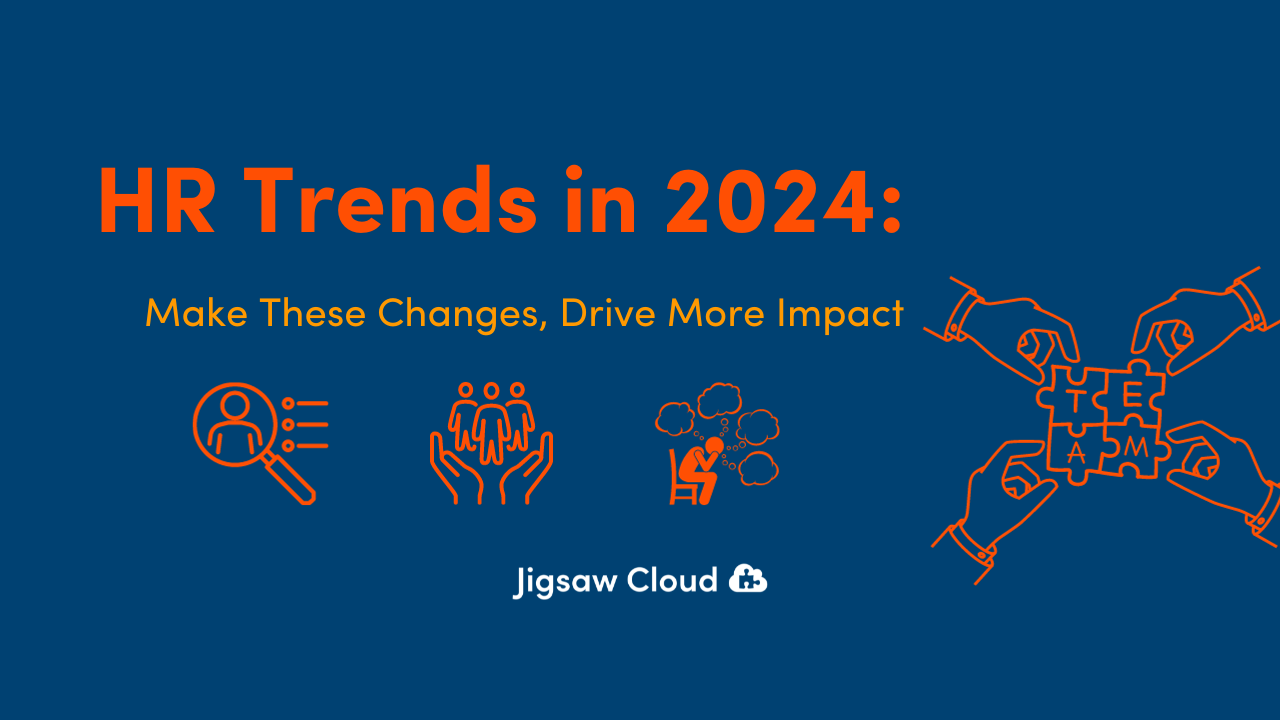
Employee experience will be crucial to attracting and retaining top talent in 2022. Read on to find best practices to incorporate into your strategy this year.
After a year of record-high resignation figures across nearly every industry, many HR leaders are focusing on how they can retain their top performers and attract new talent into their organisations. And as a result, employee experience is quickly becoming one of the top priorities for 2022.
Employee experience considers how your employees feel about their jobs, the physical work environment and culture within your company, and their relationships with colleagues, management, and executives. And every element is crucial to helping employees remain engaged, satisfied, and committed to staying with your company.
If managed strategically, positive employee experiences can have huge impacts across your business – such as reducing staff turnover, improving productivity, differentiating your brand to prospective employees, and much more.
But despite the value of positive employee experiences, many organisations still aren’t hitting the mark. In fact, Gartner reports that 87% of employees aren’t fully satisfied with their experience today.
Throughout 2022, HR leaders will need to refocus their efforts on employee experience by accurately measuring the state of their experiences today and designing strategies that truly consider the needs of their employees.
To help you design your employee experience strategy for 2022, we’ve gathered some best practices for creating positive experiences at every step of the employee journey, from the moment they join to their everyday working lives.
An employees’ experience starts from the moment they find your company
Employee experience doesn’t begin on their first day – it starts as early as the recruitment process. Research from HR Grapevine’s Employee Experience Playbook shows that 78% of candidates believe the hire experience is a good indicator of what a company’s employee experience will look like. Also, 60% of candidates talk about their application experience to others. This means it’s an essential first step to get right – otherwise, you might be jeopardising your ability to attract top talent.
A good place to start is by looking at the accessibility of your application process. According to the research from the playbook, top performers are more likely to begin applications on their mobile phones, so your website and forms need to be up to date and mobile-friendly.
You’ll also need to give a realistic overview of the job in the application and during the interview, to help manage employees’ expectations and help them figure out if they’ll be a good fit for the role. If you can get this right from the beginning, it’s more likely you’ll find committed, well-suited employees for your company.
Dedicated recruitment and talent management solutions can also help with tasks such as signing contracts, completing essential paperwork, and getting new employees connected with your workplace before they’ve even walked through the door. If these administration responsibilities are dealt with upfront, recruits will be able to focus on their new roles as soon as they start.
Gain insights by continuously listening
Employee experience isn’t just something to consider for new or potential employees. Continuously listening to your current employees, especially at times of change, can help you gain the insights you need to improve their experience and create a culture of high engagement and productivity.
Research suggests formal, wide-scale surveys are a strong approach for understanding your employees’ needs. Annual surveys are particularly important to understanding how your employees are feeling on a broader scale about their roles and your company culture. During these surveys, you’ll need to consider what questions you’ll ask, how you’ll manage the data you collect, and how you’ll action the feedback.
Delivering employee surveys around important events or big changes in the company can also help you gather insights throughout the year, and help your employees feel their opinions are valued. This might include events such as onboarding, quarterly reviews, employee exits, or changes to your working models.
With the right employee management tools, you can also track and manage the data from these surveys and compare it with fluctuations in productivity and output across the year – and even correlate the results to the actions you take to see if you’re on the right path.
With employee happiness comes success
Employee experience also extends outside the office, with employees’ health, finances, family, and social life all impacting their overall wellbeing and experience at work.
There’s a fine line between where your influence and responsibilities lie as an organisation – you can’t seek to support every part of your employees’ lives, but all these factors can have a significant effect on their productivity and engagement during their working day.
A good place to focus on is making all the administration tasks outside of your employees’ roles easier, to prevent them from spending additional time outside of their working day.
For example, offering an employee portal that’s connected to your central HR system can give employees a convenient way to book annual leave, report sickness and absences, file requests, and communicate with your HR team whenever they need to.
Outside of relieving them of administration hassle, you can help employees feel satisfied in their roles by offering a clear sense of direction and progression. This can be achieved with regular catch-ups with line managers, or with a dedicated performance and learning management tool that helps employees track their progress towards goals, rewards, and promotions.
Tools like these can be an effective way to boost employees’ engagement with their roles and your company, especially if it’s paired with a modern eLearning solution that helps them take control of their own training opportunities.
Ready to kickstart your employee experience strategy in 2022?
If you’d like to discuss your employee experience strategy, we have consultants with decades of HR experience across a wide range of sectors – just get in touch to see how we can help.


